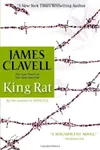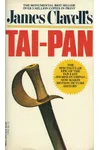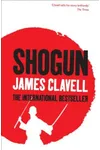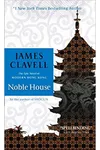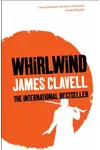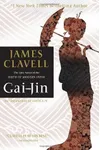Step into the vibrant world of the Asian Saga, where epic tales of East meets West unfold across centuries of history! James Clavell’s beloved series of historical novels whisks readers from the samurai-filled courts of feudal Japan to the bustling trade hubs of 19th-century Hong Kong, blending meticulous research with gripping storytelling. With its rich characters and profound exploration of cultural clashes, the Asian Saga has captivated readers for decades, offering an adventure that’s as enlightening as it is thrilling.
Whether you’re drawn to tales of power, loyalty, or the human spirit, this series delivers a sweeping narrative that bridges continents and eras. Let’s dive into the origins, stories, and lasting impact of this literary gem!
How Asian Saga Began
James Clavell, an Australian-born British author and former prisoner of war, crafted the Asian Saga inspired by his own experiences and fascination with Asian cultures. Captured by the Japanese during World War II and held in Singapore’s Changi Prison, Clavell gained a unique perspective on the East-West divide, which he channeled into his writing. His goal? To tell 'the story of the Anglo-Saxon in Asia,' weaving historical events with fictional drama. Starting with King Rat in 1962, Clavell’s series grew over three decades, culminating in Gai-Jin in 1993.
The Heart of Asian Saga
The Asian Saga spans six novels, each a standalone epic set in a distinct time and place. Shōgun (1975), the most famous, follows Englishman John Blackthorne, shipwrecked in 1600 Japan, as he navigates samurai politics and cultural divides to become a trusted advisor. Tai-Pan (1966) dives into the founding of Hong Kong in 1841, centered on the cunning trader Dirk Struan, whose Noble House trading company threads through multiple books. King Rat (1962), semi-autobiographical, portrays survival in a Japanese POW camp, while Noble House (1981) explores corporate intrigue in 1960s Hong Kong.
Clavell’s novels shine through their themes: the clash of Eastern and Western values, the pursuit of power, and the resilience of the human spirit. His vivid prose paints immersive worlds, from the intricate rituals of feudal Japan to the opium trade’s moral complexities. Characters like Blackthorne and Struan grapple with loyalty, honor, and ambition, making each story a deeply human journey. The series’ historical accuracy, blended with fictional flair, creates a tapestry that feels both educational and exhilarating.
Why Asian Saga Resonates
The Asian Saga’s enduring appeal lies in its ability to bridge cultures and eras, offering readers a window into Asia’s rich history through relatable characters. Its exploration of cultural misunderstandings and mutual respect resonates in today’s globalized world. Adaptations, like the Emmy-winning 2024 Shōgun miniseries, have introduced Clavell’s work to new audiences, cementing its cultural impact. Fans praise the series for its intricate plots and emotional depth, making it a staple in historical fiction.
- About Asian Saga
- Publication Years: 1962–1993
- Number of Books: 6
- Notable Adaptation: Shōgun (2024 FX/Hulu miniseries, 18 Emmy Awards)
- Key Settings: Japan, Hong Kong, Singapore, Iran
Ready to embark on a literary adventure? Grab Shōgun or Tai-Pan and dive into the Asian Saga’s thrilling world of history, intrigue, and human triumph!
